A number of new laws will come into force for the first time in the Premier League when the season kicks off on August 13…
The International Football Association Board (IFAB) announced more than 95 alterations to the laws of the game last season after 18 months of consultation, with many of the changes trialled at Euro 2016.
Here's an overview of some of the major amendments…
CHANGE 1: Kick-off
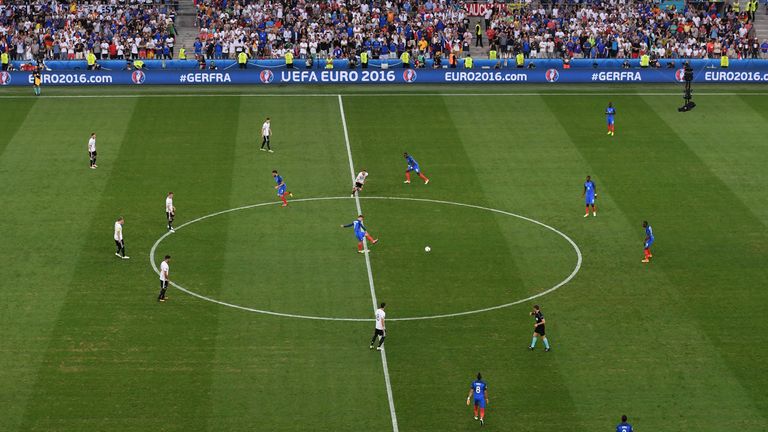
The kick-off restart can now go backwards
As seen at Euro 2016, the ball no longer has to go forward at kick-off. The previous law stated the ball had to go into the opposition half at the restart, but it has been changed to allow it to move in any direction, as long as it "clearly moves". This change has paved the way for one-man kick-offs, as seen at Euro 2016.
CHANGE 2: Pre-match red cards
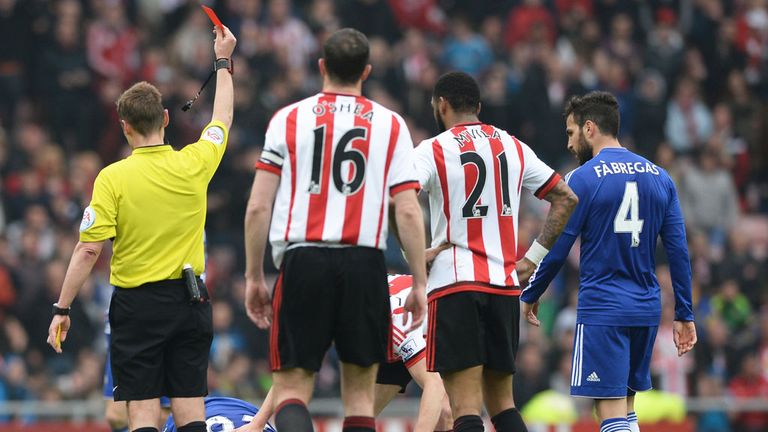
It will now be possible to get a red card before the match starts
Referees will be able to give a player a red card before the match kicks off. This allows officials to punish red-card offences (e.g. violent conduct) in the warm-up or as the two teams line up in the tunnel. The new law states a player may be sent off any time between the pre-match inspection and when the referee leaves the field at the end of the game.
CHANGE 3: An end to the 'triple-punishment law'
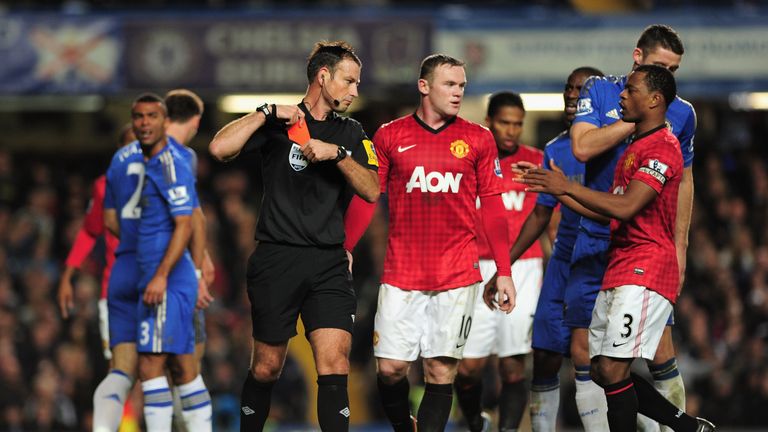
Players may only receive a yellow card if they concede a penalty
The previous 'triple-punishment' law meant a player who denied a goal-scoring opportunity in the box was automatically red-carded and handed a suspension, as well as giving away a penalty.
The law has now been changed so players committing accidental fouls that deny goal-scoring opportunities in the penalty area will not be automatically sent off, with a yellow card sufficient punishment.
As the amendment states: "When a denial of a goalscoring opportunity offence is committed by a defender in the penalty area, the penalty kick effectively restores the goalscoring opportunity so the punishment for the player should be less strong (e.g. a yellow card) than when the offence is committed outside the penalty area. However, when the offence is handball or clearly not a genuine attempt to play or challenge for the ball, the player will be sent off."
CHANGE 4: Treating injuries
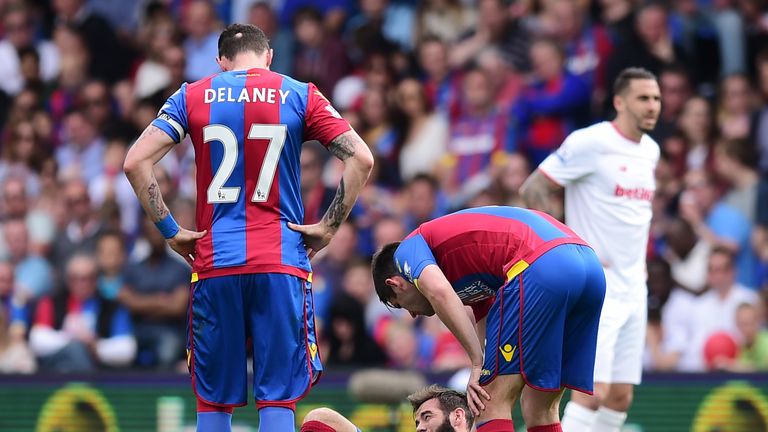
Players will be able to receive treatment quickly on the pitch if they are injured in a challenge that results in a yellow or red card
If a player is fouled and hurt by an opponent who subsequently receives a yellow or red card for the challenge, the injured player may be quickly treated on the pitch without the need to leave the field of play.
It was widely seen as unfair that a player injured by a serious foul was forced off the pitch for treatment, temporarily placing the fouled team at a numerical disadvantage.
CHANGE 5: Changing boots/equipment
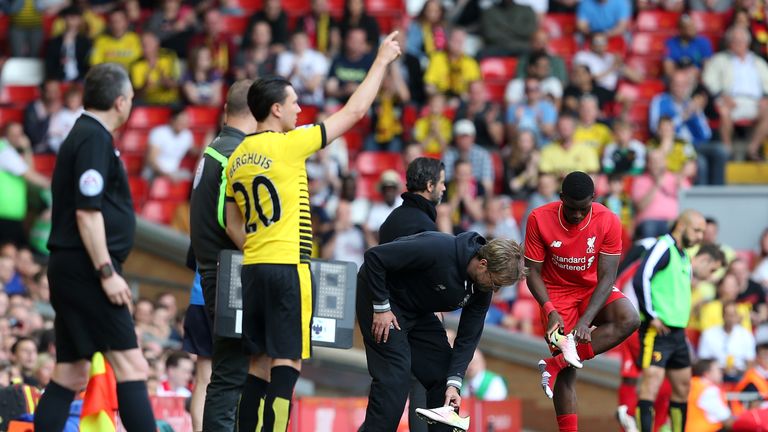
Assistant referees or fourth officials will be able to check players before they return to the pitch
A player who briefly leaves the field (e.g. to change boots) may have his new boots checked by an assistant referee or fourth official before returning to play.
Previously, the player required the referee's permission to return.
CHANGE 6: Penalties
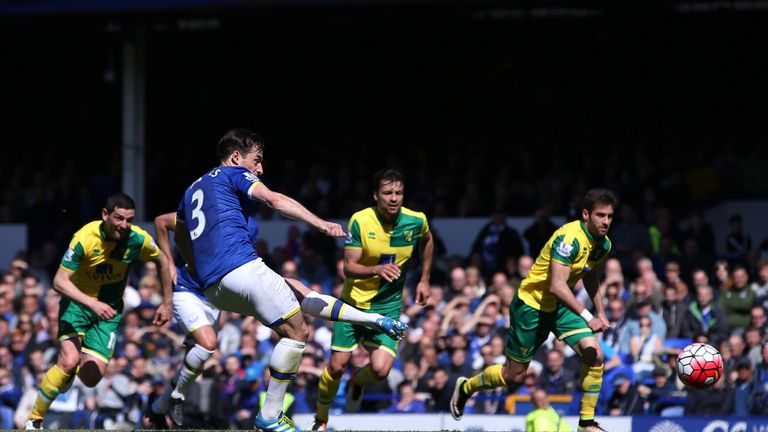
Feinting once the run-up is complete will result in a yellow card for the taker
Among several minor changes to the laws regarding penalties, potentially the most interesting is the amendment to yellow card a penalty taker who "illegally feints" once his run-up is complete. This means slowing to a stop immediately before shooting is not allowed, with a yellow card and an indirect free-kick to the opposition the result.
The law does stress feinting during a run-up is still permitted.
CHANGE 7: Infringements by substitutes/team officials
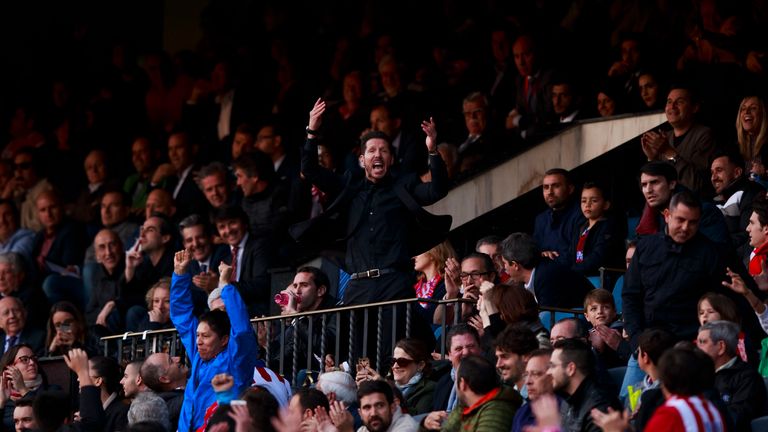 Diego Simeone watched much of Atletico Madrid's win over Malaga from the stand after he was sent of
Diego Simeone watched much of Atletico Madrid's win over Malaga from the stand after he was sent of
Atletico Madrid boss Diego Simeone was sent to the stands in April after a member of his backroom team threw a ball onto the pitch during a La Liga game in an attempt to interrupt an opponent's attack.
To address what was threatening to become a growing trend, the law has been changed so that if play is stopped due to interference from a team official or substitute, rather than the award of an indirect free-kick or drop ball, the referee will now award a free-kick or penalty kick to the opposition.
CHANGE 8: Colour of undergarments
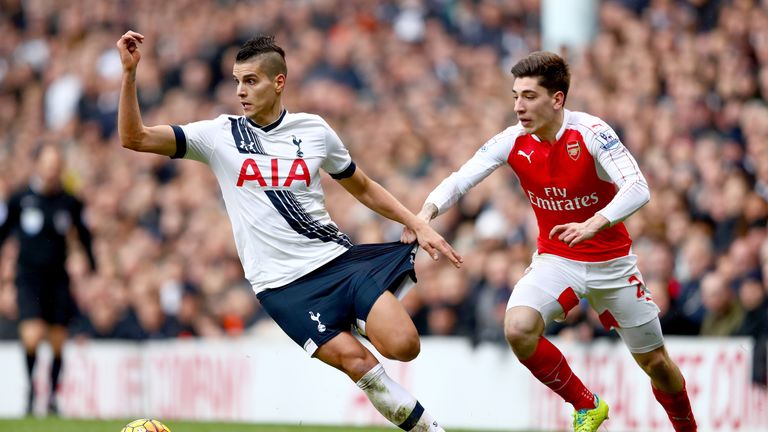
The new rule states undershorts/tights must be the same colour as the main colour of the shorts or the lowest part of the shorts. This takes into account shorts with a different coloured hem.
Undershirts must still be the same colour as the main colour of the shirt sleeve.
CHANGE 9: Offside
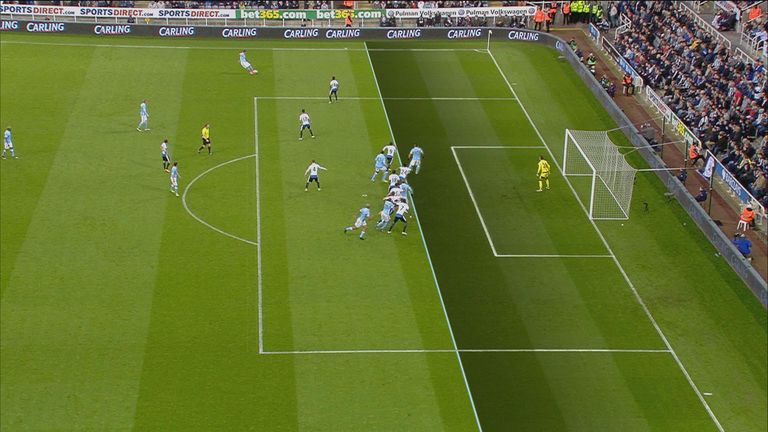
The offside rule has once again been clarified
A couple of minor clarifications to the offside rule. The law now states the halfway line is neutral, meaning a player must have part of the body (excluding arms or hands) in the opponents' half to be flagged offside.
A free-kick resulting from an offside will now always take place where the offence is committed.
CHANGE 10: Handballs
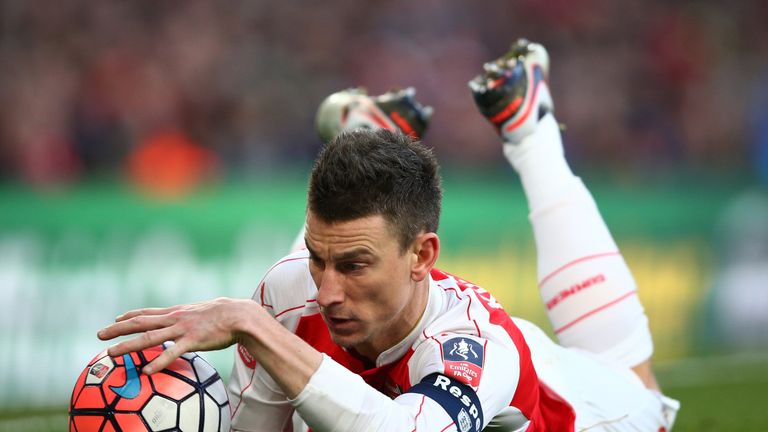
Yellow cards will be awarded when handballs prevent a promising attacking opportunity
In an effort to stop referees brandishing yellow cards for every handball, "preventing an opponent gaining possession" has been removed from the list of bookable offences.
Handball is now a yellow card offence when "it stops/interferes with a promising attack".
CHANGE 11: Restarts
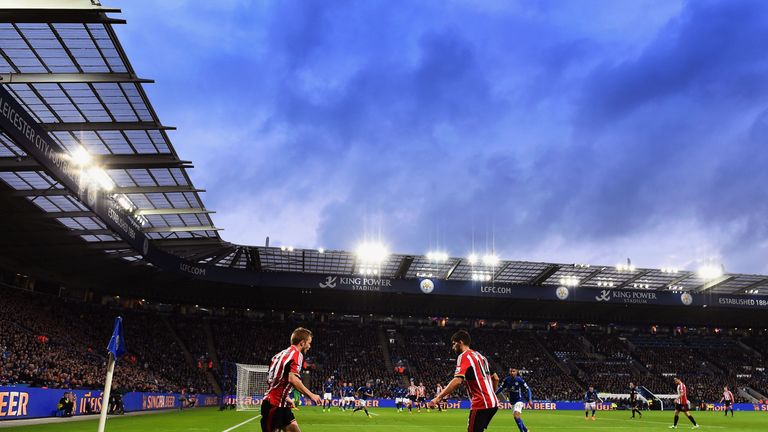
When taking a corner, the ball must clearly move
The phrase "clearly moves" has been added to the law on restarts, meaning attempts to trick the opposition by lightly tapping the ball at a corner (or free-kick) and then dribbling will come to an end. This amendment is part of a renewed emphasis on what constitutes sporting behaviour "within the spirit of the game".
CHANGE 12: Player behaviour
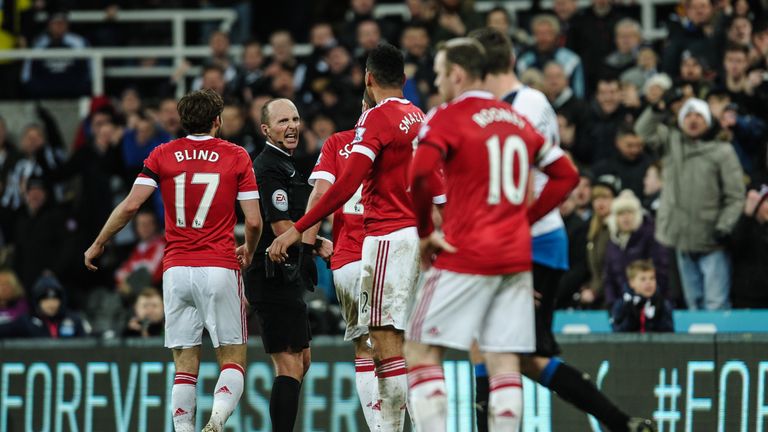
Referees have been asked to clamp down on situations when players contest their decisions
Referees have been urged to take a stronger stand on "intolerable behaviour" by players following a joint statement by the Premier League, English Football League and FA.
Running to contest decisions, arguing face-to-face with officials, and "visibly disrespectful" actions will result in yellow cards.
Red cards will be issued to players who confront officials and use insulting and/or offensive language or gestures towards them.
The aim is to "reduce disrespectful conduct such as aggressively challenging decisions or running from distance to confront an official."
A complete breakdown of the amendments to the laws of the game can be found on FIFA's website.
Source: Skysports
Advertise on NigerianEye.com to reach thousands of our daily users


No comments
Post a Comment
Kindly drop a comment below.
(Comments are moderated. Clean comments will be approved immediately)
Advert Enquires - Reach out to us at NigerianEye@gmail.com